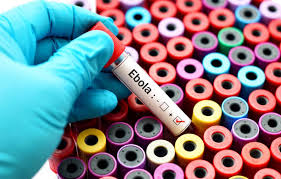
Breaking News
 The Paradox of Mamdani's Paradise
The Paradox of Mamdani's Paradise
 Stomach Acid Is Vital for Health
Stomach Acid Is Vital for Health
 Nancy Pelosi to Retire. Her Net Worth Surged 2,297% Since First Taking Office 38 Years Ago
Nancy Pelosi to Retire. Her Net Worth Surged 2,297% Since First Taking Office 38 Years Ago
Top Tech News
 Blue Origin New Glenn 2 Next Launch and How Many Launches in 2026 and 2027
Blue Origin New Glenn 2 Next Launch and How Many Launches in 2026 and 2027
 China's thorium reactor aims to fuse power and parity
China's thorium reactor aims to fuse power and parity
 Ancient way to create penicillin, a medicine from ancient era
Ancient way to create penicillin, a medicine from ancient era
 Goodbye, Cavities? Scientists Just Found a Way to Regrow Tooth Enamel
Goodbye, Cavities? Scientists Just Found a Way to Regrow Tooth Enamel
 Scientists Say They've Figured Out How to Transcribe Your Thoughts From an MRI Scan
Scientists Say They've Figured Out How to Transcribe Your Thoughts From an MRI Scan
 SanDisk stuffed 1 TB of storage into the smallest Type-C thumb drive ever
SanDisk stuffed 1 TB of storage into the smallest Type-C thumb drive ever
 Calling Dr. Grok. Can AI Do Better than Your Primary Physician?
Calling Dr. Grok. Can AI Do Better than Your Primary Physician?
 HUGE 32kWh LiFePO4 DIY Battery w/ 628Ah Cells! 90 Minute Build
HUGE 32kWh LiFePO4 DIY Battery w/ 628Ah Cells! 90 Minute Build
 What Has Bitcoin Become 17 Years After Satoshi Nakamoto Published The Whitepaper?
What Has Bitcoin Become 17 Years After Satoshi Nakamoto Published The Whitepaper?
Scientists Discover Surprising Weapon In Fight Against Brain Tumors: Ebola Virus

"The irony is that one of the world's deadliest viruses may be useful in treating one of the deadliest of brain cancers," comments Yale's Anthony van den Pol, professor of neurosurgery, in a release.
This unlikely medical collaboration takes advantage of a fundamental weakness in cancerous tumors. Most cancer cells are unable to defend themselves with an immune response against viruses. This fact has caused researchers to test out the use of viruses in the fight against cancer. Of course, using viruses for medical purposes carries some inherent risk; viruses can potentially lead to dangerous infections in cancer patients.
So, in an effort to mitigate that risk, the team at Yale have been experimenting with producing and testing out chimeric viruses, or artificially created viruses created using a combination of genes from various viruses. Ideally, these chimeric viruses should be able to target and attack cancer cells without actually harming or infecting patients.

 Digital Money Won't Feed You
Digital Money Won't Feed You
 Unbanked In A Connected World
Unbanked In A Connected World

